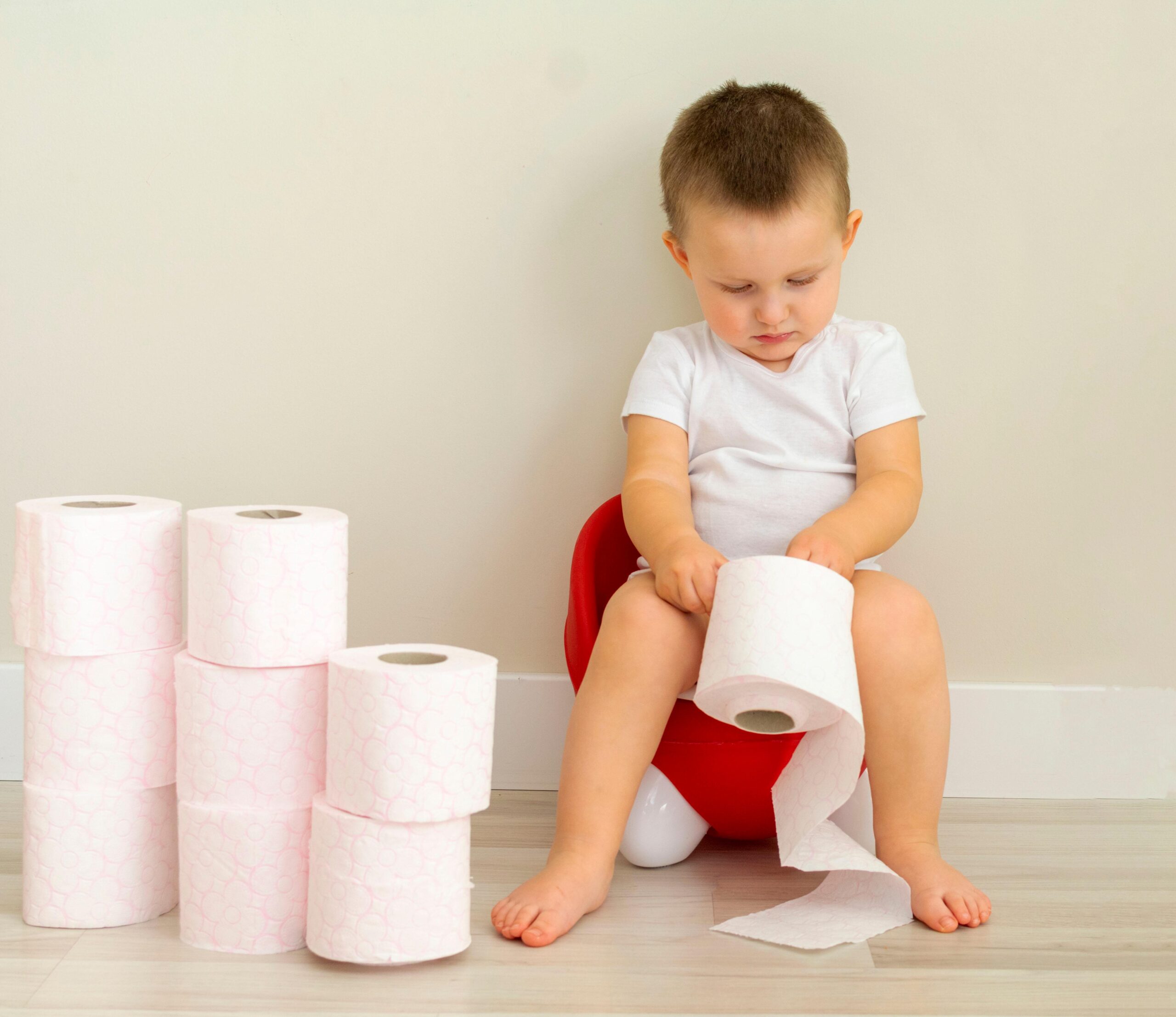What is diarrhea?
Diarrhea is when stools (bowel movements) are loose and watery. Your child may also need to go to the bathroom more often. Diarrhea is a common problem. It may last 1 or 2 days and go away on its own. If diarrhea lasts more than 2 days, your child may have a more serious problem.
Diarrhea may be either:
- Short-term (acute). Diarrhea that lasts 1 or 2 days and goes away. This may be caused by food or water that was contaminated by bacteria (bacterial infection). Or it may happen if your child gets sick from a virus.
- Long-term (chronic). Diarrhea that lasts for a few weeks.
What are the symptoms of diarrhea?
Symptoms can occur a bit differently in each child. They can include:
- Cramping
- Belly (abdominal) pain
- Swelling (bloating)
- Upset stomach (nausea)
- Urgent need to use the bathroom
- Fever
- Bloody stools
- Loss of body fluids (dehydration)
- Incontinence
Why is it important to treat diarrhea?
In most cases, diarrhoea eases and goes within several days but sometimes takes longer. The main risk is lack of fluid in the body (dehydration). The main treatment is to give your child lots to drink; this may be by giving special rehydration drinks. Also, once any dehydration is treated with drinks, encourage your child to eat as normally as possible.
When to see a doctor?
The following is a list of signs and symptoms that are worrisome and require immediate medical attention:
● Bloody diarrhea
● Refusal to eat or drink anything for more than a few hours in infants and for more than eight hours in children
● Moderate to severe dehydration
● Abdominal pain that comes and goes or is severe
● Behavior changes, including lethargy or decreased responsiveness
● Intense, repeated vomiting
بچوں میں اسہال یا ڈائیریا
؟اسہال کیا ہے؟
اسہال اس حالت کو کہتے ہیں جب موشن (آنتوں کی حرکت) پتلے اور پانی کی طرح سے آئیں۔ آپ کے بچے کو تھوڑی تھوڑی دیر سے باتھ روم جانے کی ضرورت پڑے۔ اسہال ایک عام مسئلہ ہے۔ یہ 1 یا 2 دن تک جاری رہ سکتا ہے اور خود ہی چلا جاتا ہے۔ اگر اسہال 2 دن سے زیادہ رہتا ہے تو ، آپ کے بچے کو زیادہ سنگین مسئلہ ہوسکتا ہے۔
اسہال مندرجہ بالا وجوہات کی بنا پر ہو سکتا ہے۔
قلیل مدتی ....شدید
یہ وہ اسہال ہے جو 1 یا 2 دن تک رہتا ہے اور چلا جاتا ہے۔ یہ خوراک یا پانی کی وجہ سے ہوسکتا ہے جو بیکٹیریا (بیکٹیریل انفیکشن) سے آلودہ تھا۔ یا یہ ہوسکتا ہے کہ آپ کا بچہ کسی وائرس سے بیمار ہو جائے۔
طویل مدتی (دائمی)۔
یہ وہ اسہال ہے جو چند ہفتوں تک رہتا ہے۔
اسہال کی علامات کیا ہیں؟
اسہال کی علامات ہر بچے میں قدرے مختلف ہو سکتی ہیں۔ اس میں شامل ہیں
پیٹ میں مروڑ ہونا۔
پیٹ میں درد۔
سوجن یا اپھارہ
پیٹ کی خرابی یا متلی
باتھ روم استعمال کرنے کی فوری ضرورت۔
بخار
خونی پاخانہ
جسمانی سیالوں کی کمی (پانی کی کمی)۔
پیٹ کی بے ضابطگی۔
اسہال کا علاج کیوں ضروری ہے؟
زیادہ تر معاملات میں ، اسہال خود ہی کم ہوجاتا ہے اور کچھ دنوں کے اندر چلا جاتا ہے لیکن بعض اوقات زیادہ وقت لگتا ہے۔ اس میں اہم خطرہ جسم میں سیال کی کمی (پانی کی کمی) ہے۔ اس کا بنیادی علاج یہ ہے کہ آپ اپنے بچے کو کافی مقدار میں پانی پلائیں۔ یہ خاص ری ہائیڈریشن مشروبات دے کر ہوسکتا ہے۔ نیز ، ایک بار جب پانی کی کمی کا مشروبات سے علاج کیا جائے تو ، اپنے بچے کو معمول کے مطابق کھانے کی ترغیب دیں۔
ڈاکٹر سے کب ملنا ہے
درج ذیل علامات کی ایک فہرست ہے جو تشویشناک ہے اور فوری طبی امداد کی ضرورت ہے۔
خونی اسہال
شیر خوار بچوں میں کچھ گھنٹوں سے زیادہ اور بچوں میں آٹھ گھنٹے سے زیادہ کچھ بھی کھانے پینے سے انکار۔
درمیانے سے شدید درجے تک پانی کی کمی۔
پیٹ میں درد جو آتا ہے اور جاتا ہے یا شدید ہوتا ہے۔
رویے میں تبدیلی ، بشمول سستی یا ردعمل میں کمی۔
شدید اور بار بار قے آنا۔
Doctors to consult (Paediatrician):
Dr. Rabia Safdar Saleem, Dr. Waheed Ahmed, Dr. Zafar Iqbal
Note: Click the Doctor's name to make an appointment.
Reference:
https://www.hopkinsmedicine.org/health/conditions-and-diseases/diarrhea-in-children
https://patient.info/childrens-health/acute-diarrhoea-in-children
https://www.uptodate.com/contents/acute-diarrhea-in-children-beyond-the-basics#H111381099

